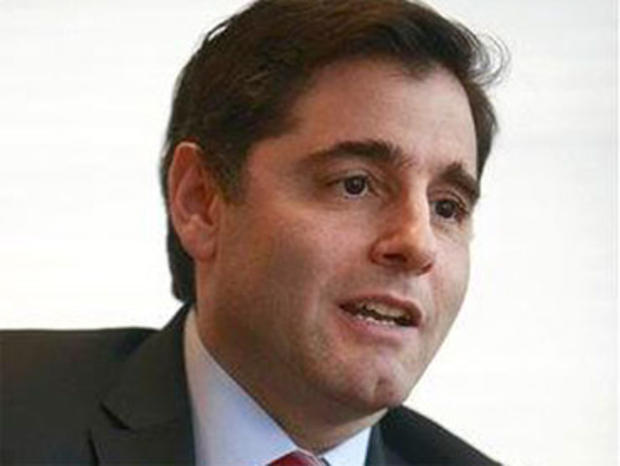Liberals Lash Out at "Fake Net Neutrality"
The Federal Communications Commission vote on "net neutrality" would seem to be good news for supporters of an open Internet: It will "prohibit phone and cable companies from abusing their control over broadband connections to discriminate against rival content or services, such as Internet phone calls or online video, or play favorites with Web traffic," as the Associated Press puts it.
But open Internet supporters say the net neutrality agreement worked out by FCC Chairman Julius Genachowski falls far short of their goal.
First, a definition: net neutrality is the term used to describe the effort to ensure that Internet users have equal access to all of the sites and online services on the Internet. Perhaps a less-intimidating term would be "neutral Internet" - that is, an Internet where every site is on a level playing field, regardless of its relationship to the Internet provider.
Supporters of an open Internet have been pushing the FCC to enforce net neutrality for years. But they complain that the compromise worked out by Genachowski - whose efforts to work with AT&T and other service providers rankled Internet activists - are "worse than nothing," in the words of Democratic Sen. Al Franken of Minnesota.
One problem cited by Franken, based on early reports of the agreement, is that while it restricts fixed-line broadband Internet service providers from discriminating among various websites, it allows companies to manage data on mobile devices, which have greater bandwidth constraints.
"Mobile networks like AT&T and Verizon Wireless would be able to shut off your access to content or applications for any reason," said Franken. "For instance, Verizon could prevent you from accessing Google Maps on your phone, forcing you to use their own mapping program, Verizon Navigator, even if it costs money to use and isn't nearly as good. Or a mobile provider with a political agenda could prevent you from downloading an app that connects you with the Obama campaign (or, for that matter, a Tea Party group in your area)."
Franken also complains that the draft agreement does not ban "paid prioritization" - that is, allowing businesses and others to pay to ensure faster access to their web content. "Instead, the draft Order would have the effect of actually relaxing restrictions on this kind of discrimination," he complains.
Timothy Karr, Campaign Director of Free Press and SavetheInternet.com, calls the new rules "toothless."
"The rule is so riddled with loopholes that it's become clear that this FCC chairman crafted it with the sole purpose of winning the endorsement of AT&T and cable lobbyists, and not defending the interests of the tens of millions of Internet users," he writes. "For the first time in history of telecommunications law the FCC has given its stamp of approval to online discrimination." (Check out a video making an argument against "fake net neutrality" at left.)The critics are also going after President Obama, who has said he would "take a backseat to no one in my commitment to net neutrality."
"This bogus victory has become all too familiar to those watching the Obama administration and its appointees squander opportunities for real change," wrote Karr. "The reality is that reform is just a rhetorical front for industry compromises that reward the biggest players and K-Street lobbyists while giving the public nothing."
Added Gigi Sohn, president of Public Knowledge: "Instead of strong, firm rules providing clear protections, the commission, created a vague and shifting landscape open to interpretation."
As the New York Times reports, two Democratic commissioners are poised to reluctantly accept the Genachowski plan, while two Republicans are poised to oppose it. (That would be three votes to two in favor, enough for passage.) The argument of the Republicans is that any net neutrality rules go too far.
Robert McDowell, one of the GOP commissioners, wrote in a Wall Street Journal op-ed that "nothing is broken that needs fixing."
"The Internet has been open and freedom-enhancing since it was spun off from a government research project in the early 1990s," he wrote. "Its nature as a diffuse and dynamic global network of networks defies top-down authority. Ample laws to protect consumers already exist."
Republicans are poised to examine the agreement with a critical eye when they take over the House in January.
Genachowski is laying out his argument for the agreement on Tuesday. In excerpts of his remarks released last night, he called the plan a "strong and balanced" way to bring much-needed rules that protect Internet freedom.
"We are told by some not to try to fix what isn't broken, and that rules of the road protecting Internet freedom would discourage innovation and investment," Genachowski's remarks read. "But countless innovators and investors say just the opposite, including many who generally oppose government action. Over the course of this proceeding we have heard from so many entrepreneurs, engineers, venture capitalists and others working daily to maintain U.S. leadership in innovation. Their message has been clear: the next decade of innovation in this sector is at risk without sensible rules of the road...At the same time, while acting to preserve Internet freedom and openness, government must not overreach by imposing rules that are overly restrictive or that pretend to knowledge about this dynamic and rapidly changing marketplace that we simply do not possess."

